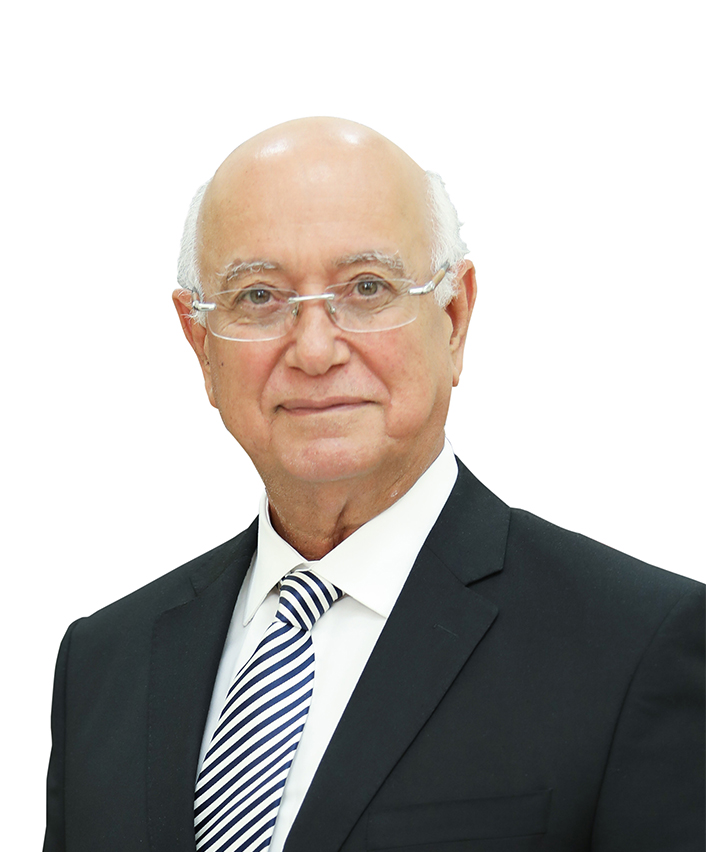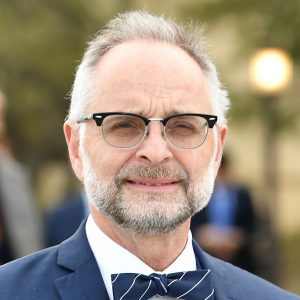Speakers and Abstracts
Plenary 1: What do we mean by Artificial Intelligence?

Jordan Srour, PhD
This session will give educators the opportunity to explore innovative digital tools and strategies to enhance learning. Through first-hand experience with a variety of tools, educators will in turn discuss how such tools can be used to foster critical thinking and collaboration in their own teaching environments. Specifically, participants will experiment with a selection of AI tools for both educators (eg. Educaide.ai) and learners (eg. character.ai) after which they will engage in a facilitated discussion about how best to leverage these and other digital tools to promote critical thinking in medical education.
Plenary 2: Simulation-Based Education in the AI Era: New Frontiers

Pier Luigi Ingrassia, MD, PhD
Plenary 3: The Future of Health Professions Education in the Rapidly Changing Healthcare Ecosystem

Hossam Hamdy, MD, PhD
The complexity of health professions education and the healthcare ecosystem is a “wicked problem.”
It is a challenge to educate, train and develop health professionals who will be practicing in 2030 and beyond. Societal needs, expectations, and healthcare systems are rapidly changing. The interface and integration of technology in education and practice will impact formal education, continuing professional development and lifelong learning.
In this lecture, I will try to address the challenges and offer a view of the solutions through the lens of “Systems Thinking” and Health Sciences Systems.
Plenary 4: Virtual and Augmented Reality in Practice: Educational Applications in Healthcare

Marc Lazarovici, MD
This session explores the practical integration of virtual reality (VR) and augmented reality (AR) in healthcare education and clinical training. Moving beyond the novelty of emerging technologies, the focus is placed on pedagogical value, usability, and evidence-informed implementation.
Drawing on recent examples from undergraduate and postgraduate education, the session demonstrates how immersive technologies can enhance procedural learning, spatial understanding, and clinical decision-making. Particular attention is paid to how VR and AR support safe, repeatable, and scalable training environments—especially in areas where traditional simulation may be logistically or financially limited.
The session will also highlight applications within healthcare practice itself, with a strong focus on telemedical applications.
Rather than presenting technology for its own sake, this session positions VR and AR as tools to strengthen learner engagement, improve competence acquisition, and support the transition from theory to practice. The aim is to provide educators and practitioners with a critical perspective on how immersive technologies can be used meaningfully in contemporary healthcare education and service delivery.
Plenary 5: Ethics in Health Professions Education in the Era of AI

Ken Masters, PhD, FDE
The use of Artificial Intelligence (AI) in Health Professions Education (HPE) promises great advantages, and is set to change HPE dramatically. It is imperative, however, to use AI in HPE ethically. Before doing that, we need some grasp of the relevant ethical issues, difficulties and solutions. This short presentation will raise and address these so that HPE educators can be aware of them, and can be better prepared to use AI ethically in their professional lives.
Plenary 6: Integrating AI in Education: Essential Competencies for the Graduate of Tomorrow

Sola Aoun Bahous, MD, PhD, MHPE
The complexity of health professions education and the healthcare ecosystem is a “wicked problem.”
It is a challenge to educate, train and develop health professionals who will be practicing in 2030 and beyond. Societal needs, expectations, and healthcare systems are rapidly changing. The interface and integration of technology in education and practice will impact formal education, continuing professional development and lifelong learning.
In this lecture, I will try to address the challenges and offer a view of the solutions through the lens of “Systems Thinking” and Health Sciences Systems.
Plenary 7: The New Horizons of Assessment in Health Professions Education

John (Jack) Boulet, PhD
The delivery of healthcare is rapidly changing, forcing healthcare professionals to expand their knowledge base and learn new skills. Today’s practitioners must know about personalized medicine, artificial intelligence (AI) and machine learning, telemedicine and remote monitoring, regenerative medicine and biotechnology, patient empowerment, health data ownership, integration of holistic and traditional medicine, ethical and regulatory challenges, and shifts towards preventive care. Competency in these domains will make healthcare more efficient, accessible, and personalized, improving outcomes for patients while also posing new challenges for practitioners and policymakers.
From an educational perspective, where assessment drives learning, there are serious trepidations regarding the validity of the test scores generated from school-based, licensure, and certification examinations. The source of these concerns rests with what is, and is not, being measured on currently administered assessments. Testing programs, including those used for licensure and certification, rely primarily on multiple choice questions to gauge ability levels related to knowledge, application of knowledge, and clinical decision making. The COVID-19 pandemic led to the demise of many performance-based assessments, thus limiting the measurement of clinical skills needed to provide safe and effective care. In the United States, the National Board of Osteopathic Medical Examiners (NBOME) is pilot testing the Core Competency Capstone for osteopathic physicians (C3DO), a national standardized patient examination conducted locally at colleges of medicine. The assessment of healthcare professionals, especially during their educational journeys, should focus on the knowledge, skills, and abilities required for the current, rapidly changing, patient care environment.
Stakeholders are now demanding a better alignment of assessment practices and required practitioner abilities. To do this, we must determine what specific practitioners need to know and be able to do and create new assessment programs and associated tools that can reliably and validly measure the important practice domains. This will ensure that healthcare professionals entering the workforce are adequately prepared for patient care.
References
Boulet, J. & Durning, S. (2019). What we measure … and what we should be measuring in medical education. Medical Education, 53(1), 86-94. doi: 10.1111/medu.13652
Boulet, J., Sandella, J., Gimpel, J. & LaBaere, R. (2025). Assessing fundamental clinical skills of osteopathic medical students. Journal of Osteopathic Medicine published online April 8, 2025. https://doi.org/10.1515/jom-2024-0255
Plenary 8: AI in Medical Education Research
Guillaume Alinier, PhD, MPhys, PGCert, SFHEA
Mankind and its constant pursuit for technological advancements is seeing no respite in all industries and domains of activity. After the military, the healthcare and agriculture industries are often cited as early adopters of new technologies. These industries, accompanied by other profit seeking sectors, are driven by the need to improve efficiency, accuracy, and outcomes, leading them to embrace advancements like robotics, data analytics, and specialized software. “Education” however is often relatively neglected or underfunded in relation to its real needs and the impact it has on societies. In this talk we will explore how AI has started to be used in medical education research.
Plenary 9: Simulation-Enhanced Interprofessional Education in Health Care

Ralf Krage, MD
Workshop: SimUniversity: Interactive Simulation for Healthcare Students
Marc Lazarovici, MD
Ralf Krage, MD
Vanda Abi Raad, MD, MBA, MHPE
This session introduces SimUniversity, a simulation-based learning format developed by SESAM, the European Simulation Society, and designed specifically for medical students. Participants will take part in a full simulation scenario followed by a structured debriefing, with a focus on both technical and non-technical skills relevant to clinical practice.
The core aim is to provide a realistic yet psychologically safe environment in which learners can engage with clinical challenges, reflect on their performance, and develop confidence. Emphasis is placed on teamwork, communication, and decision-making under pressure, alongside core clinical skills. All activities are conducted in a confidential setting that encourages learning through experience, without fear of judgement.
By participating in the scenario and debriefing, attendees will gain insight into how simulation can support the development of essential professional competencies in undergraduate medical education. The session highlights the value of experiential learning and reflective practice as tools to prepare students for real-world clinical environments.

